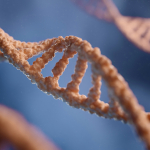Global Niemann-Pick Disease Awareness Day Date in the current year: October 19, 2026
 Global Niemann-Pick Disease Awareness Day is observed annually on October 19. The day was created to raise awareness of Niemann-Pick disease, a rare genetic disorder characterized by the accumulation of lipids in cells of various organs.
Global Niemann-Pick Disease Awareness Day is observed annually on October 19. The day was created to raise awareness of Niemann-Pick disease, a rare genetic disorder characterized by the accumulation of lipids in cells of various organs.Niemann-Pick disease (NP) is an umbrella term for a group of rare genetic lysosomal storage disorders (LSDs). Lysosomes are cell organelles that contain enzymes which break down large molecules. LSDs are caused by defects in one of these enzymes, which results in the accumulation of large molecules in cells and eventual cell death.
There are two main types of NP. SMPD1-associated NP is caused by mutations in the SMPD1 gene, which result in a deficiency of acid sphingomyelinase. This enzyme is responsible for breaking down the lipid sphingomyelin. This type of NP has two subtypes: type A (NPA) and type B (NPB). Patients with NPA have little to no acid sphingomyelinase, while patients with NPB have approximately 10% of the normal level of the enzyme.
Niemann-Pick disease type C (NPC), colloquially referred to as childhood Alzheimer’s disease, is a separate condition caused by mutations in the NPC1 or NPC2 genes. These mutations do not cause acid sphingomyelinase deficiency. Instead, they affect proteins that transport cholesterol. This results in the accumulation of lipids and cholesterol in cell membranes.
Symptoms of NP result from the accumulation of lipids in various organs, including the liver, spleen, lungs, bone marrow, and brain. SMPD1-associated NP symptoms are related to the organs in which the lipids accumulate. Liver- and spleen-related symptoms, for example, include simultaneous enlargement of the liver and spleen. This can cause loss of appetite, abdominal distention and pain, and low platelet levels in the blood.
The accumulation of sphingomyelin in the central nervous system can cause gait abnormalities (ataxia), slurred speech (dysarthria), difficulty swallowing (dysphagia), repetitive movements or fixed abnormal postures (dystonia), seizures, and a gradual loss of intellectual abilities.
The specific symptoms and their severity depend on the type of NP. NPA causes severe neurological symptoms that usually lead to death within four years of age. In contrast, NPB typically causes minimal neurological involvement, though it can lead to complications such as liver and spleen enlargement, respiratory issues, and heart disease. With supportive treatment, patients with NPB can live into adulthood. Most cases of SPPD1-associated NP are NPB or an intermediate form (Type A/B).
Patients with NPC typically experience both neurological and visceral symptoms, including ataxia, dysarthria, dysphagia, seizures, sudden loss of muscle tone (cataplexy), cognitive decline, and dementia-like symptoms. Onset usually occurs before the age of 10 but can happen in adulthood. The earlier the onset, the faster the disease progresses, and the worse the prognosis.
Like most genetic diseases, NP is incurable, and treatment is mainly supportive. Depending on the symptoms and their severity, supportive measures may include respiratory support, nutritional management, seizure management, physical and occupational therapy, and psychological and palliative care. Medications are prescribed to patients with NPB to control non-neurological symptoms.
Global Niemann-Pick Disease Awareness Day is observed annually on October 19 to raise awareness of this rare disease and its impact on patients and their families. The day also aims to encourage research into NP to find more effective treatments and, eventually, a cure. Additionally, the day aims to expand access to treatment and care.
- Category
- International Observances
- Tags
- Global Niemann-Pick Disease Awareness Day, international observances, awareness days, rare diseases, genetic diseases